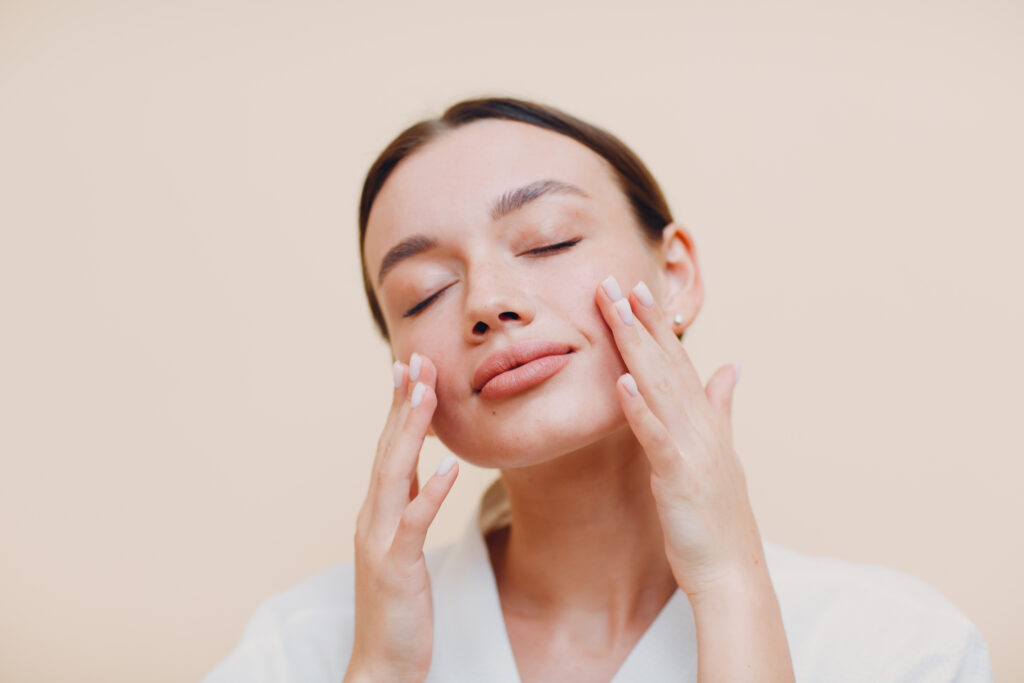Let’s Talk About the Skin Barrier

Whenever you purchase a skincare product, or even see a commercial for skin care, you are likely to hear about the skin barrier. What does it mean? Do you know why your skin barrier matters? More importantly, do you know how to protect it? Here’s the skinny on the skin barrier and what you need to know.
The skin is the body’s largest organ, making up about 15 percent of a person’s total body weight. It’s also extremely important because it protects your insides from the outside world. The skin has three main layers, the epidermis, the dermis, and the hypodermis, and those layers have several sublayers with their own special functions. The outermost layer of the epidermis is the stratum corneum, also known as the skin barrier.
The purpose of the skin barrier is to protect the epidermal skin cells from environmental damage and prevent dehydration of the skin. When it is working the way it should, the skin barrier prevents water from evaporating into the atmosphere and keeps allergens, irritants, and bacteria from being able to penetrate your skin. The skin barrier is made of lipid bilayers that hold together the skin cells in your epidermis. If you think of your epidermal layer as a brick wall, the skin cells are the bricks, and the skin barrier is the mortar.
How do you know if your skin barrier is damaged? When the skin barrier is damaged, the skin will be more prone to dehydration and may have a dull, dry appearance. You may notice discoloration, laxity, and premature wrinkles. In fact, most common skin concerns are due to a poorly functioning skin barrier, including acne, dry, flaky skin, skin infections, inflammation or irritation, itchiness, rough patches, tenderness, sensitivity, or stinging.
What causes damage to the skin barrier? It’s really impossible to list all of the things that can damage your skin barrier. Lifestyle factors like an unhealthy diet or smoking can cause damage, and so can using the wrong skincare products. Stress can damage your skin barrier, and so can over-exfoliation or poor sleep. Any external or internal stressor that changes the look of your skin has probably damaged your skin barrier. Genetics come into play, too, and conditions like eczema are caused by an impaired skin barrier.
How can you protect your skin barrier?
- First, cleanse your face gently to remove the dirt, oil, and pollutants that can accumulate and harm the skin barrier. Use a mild cleanser and lukewarm water, so that you do not dehydrate your skin. You can then follow up with an alcohol-free toner to help balance and soothe your skin.
- Use facial serum targeted to your specific skin. To strengthen the skin barrier, you might choose a serum with hyaluronic acid, for example, while a gentle, hydrating serum might be best for dry skin.
- Apply moisturizer in the morning and at night. A lightweight moisturizer can hydrate and protect your face during the day, while a heavier cream can help restore your skin barrier while you sleep.
- Consider adding facial oil to your routine. Using daytime facial oil with antioxidants can help defend your skin against external stressors and free radicals.
- Never skip the SPF. This will help keep your skin not only healthy-looking but also physically healthy. It will protect against painful, damaging sunburns, while also reducing your risk of skin cancer and the signs of aging.
Talk to your dermatologist about specific recommendations to protect your skin barrier. If you’re looking for a dermatologist, Swinyer-Woseth Dermatology is committed to providing superior, professional hair and skin care in a manner that’s practical, efficient, and compassionate. With over 30 years of experience providing dermatological services in Salt Lake City, we provide a variety of services, from cosmetic skincare to treatment for skin cancer. Our team of board-certified dermatologists and licensed cosmetic service providers are here to provide you with the care you need in a comfortable, professional atmosphere. Call (801) 682-4715 or contact us through our website.
